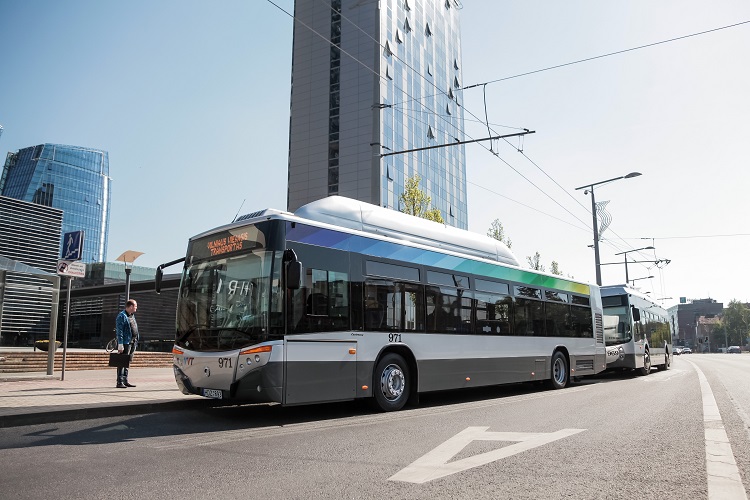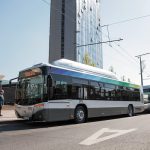Spring is definitely the time for innovations and apart from a nice weather there is other exiting news Vilnius transport feels is worth sharing.
On the 24th of April a national take up seminar took place in Vilnius. The seminar was initiated by international TIDE project. TIDE – ‘Transport Innovation Deployment for Europe’ is a project funded by European Commission, which focuses upon 15 innovative measures in 5 thematic clusters: financing models and pricing measures, non-motorized transport, network and traffic management to support traveler information, electric vehicles and public transport organization. Vilnius is a Champion City in the Project and participate in the Project under the fifth thematic cluster – public transport organisation, which means that the city receives assistance from the partners to implement the selected measure – the creation of metropolitan transport authority in the region.

The aim of the seminar was to present how a variety of different set ups for organizing and governance of urban public transport works in different regions, what main functions and activities of a public transport authorities can be identified in several cities, as well as take inventory of good practices and the look for a possible solutions to organize public transport in the regional level in Lithuania.
Vilnius had the honor of hosting the guests not only from Lithuania, but also from other European cities such as Gdansk, Brussels, Amsterdam and Bologna. A number of valuable presentations were made during the event.
The seminar was wrapped up by a fruitful discussion where the problems of public transport organization in the Lithuanian regions were raised and possible solutions in the case of Lithuania were offered. The issues of ensuring comfortable, attractive and fast commuting between the region and the main centers of attraction – cities have been covered as well. Since the organization of public transport cannot be restricted on the basis of administrative boundaries, it must be organized according to the population and their mobility needs.
The seminar highlighted that the development of residential areas in the suburbs prompts the need for convenient and high-quality public transport organization in the regions. It is therefore necessary for both national government and municipal leaders as well as politicians to have their input – review of legislation and amendments, whilst also support towards the idea of innovation and cooperation. Integrated and easily accessible public transport benefits are directly related to the reduction of traffic congestion, environmental pollution and mitigation of other negative impacts caused by the increase of private cars, lorries and public transport vehicles running on fossil fuels.
For more information: Modesta Gusarovienne
